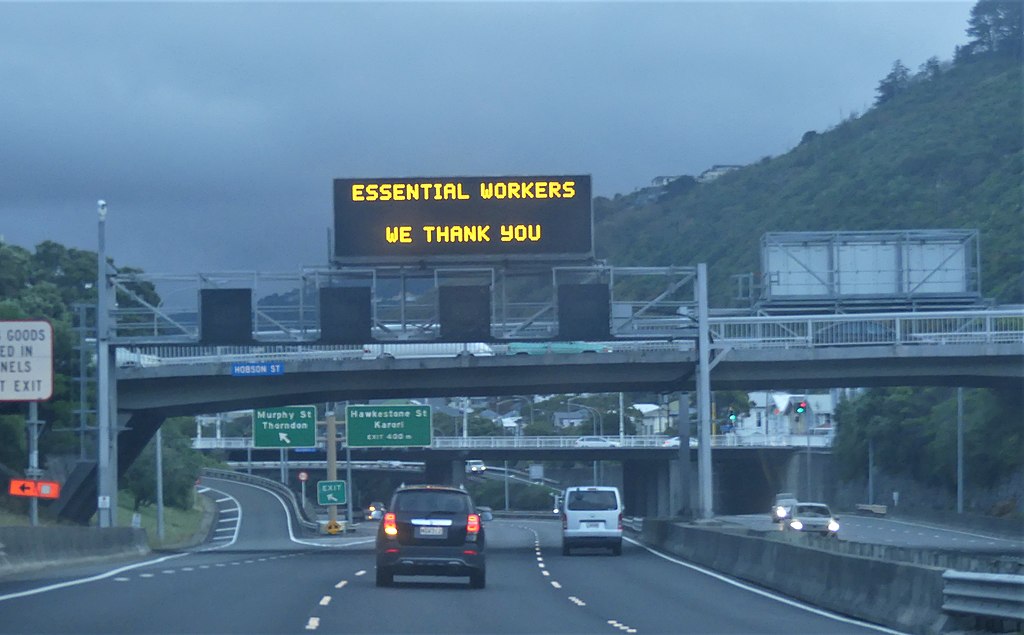Anti-abortion politics have taken centre stage in the media following the passing of “fetal-heartbeat” laws this year in several US states: Ohio, Mississippi, Georgia and Kentucky. The new laws ban abortion beyond six weeks of pregnancy, before most people know they are pregnant. Alabama has passed an even more restrictive law that bans abortion at any stage of pregnancy. None of these restrictive laws are in effect because they are under legal challenges.
The real target of these state-level laws is the 1973 Supreme Court decision on Roe v. Wade that established the right for all American women to obtain an abortion. Alabama state Representative Terri Collins, who sponsored her state’s anti-abortion law, said “What I’m trying to do here is get this case in front of the Supreme Court so Roe v. Wade can be overturned.” These moves follow Trump’s appointments of Neil Gorsuch and Brett Kavanaugh to the Supreme Court to give it a 5 to 4 conservative majority.
So where did these new state-level laws come from? The attacks in the US are a backlash against the gains of the women’s movement won out of the battles of the 1960s and 1970s amidst the general rise in the class struggle. The American conservative right would dearly love to turn the clock back but it is countered by lasting mass support for reproductive rights. Abortion has become a central issues in US politics. According to a poll taken on behalf of the pro-choice organisation NARAL, 85 percent of voters believe that abortion should be legal.
The battle world-wide
When access to abortions is restricted, pregnant people die. In 2018, the World Health Organisation published a report confirming that in countries where access to abortion is restricted, women will be maimed or will die in their tens of thousands from unsafe and illegal abortion procedures. The report showed that each year nearly 70,000 women die due to the complications of unsafe abortion. Far from preventing abortions, “the evidence shows that women who seek an abortion will do so regardless of legal restrictions.” And where abortions are performed in an illegal context they are “likely to be unsafe and provided by unskilled persons in unhygienic conditions.” The religious right’s claim to uphold the “sanctity of life” is a fraud. Restrictions on abortion kill working-class or poor women.
Within a global context however, the present-day struggle is not all doom and gloom. Far from it. In fact, the past few years has seen an unprecedented upwelling of mass protests and strike actions around the world around questions of pay equity, rape and sexual harassment, and reproductive rights. A new era of rebellion has begun with bold horizons that has several major victories already on its books. In May 2018, on the back of strikes and mass organising, Ireland voted overwhelmingly in favour of a woman’s right to choose. In Argentina, the country of Pope Francis, the feminist movement managed in June 2018 to get a bill into the lower house of congress that would legalise abortion within the first fourteen weeks of pregnancy. And in Poland, since 2016, hundreds of thousands of women have protested for abortion rights.
Around the world, legal victories are being won, forms of protest are being reinvigorated, and new networks of activists are being forged. The high point of the movement so far has been the annual International Women’s Strike, the first of which took place on International Woman’s Day, 8 March 2017. This built on the October 2016 ‘Black Monday’ women’s strike in Poland, strikes and demonstrations in Argentina, and the January 2017 Women’s March on Washington. The March 2018 International Women’s Strike was supported by action in many more countries than in 2017. In Spain 5.3 million women shut down the country to demand a “society free of sexist oppression, exploitation, and violence.”
The Battle for abortion legalisation in Aotearoa
A parliamentary petition calling for the decriminalisation of abortion has been signed by nearly 40,000 people, and abortion is back on the parliamentary agenda after decades of inaction.
In a Newshub leaders debate during the 2017 general election campaign, Jacinda Ardern argued for taking abortion out of the Crimes Act. The new justice minister, Andrew Little, asked the Law Commission for advice on a legal approach to treating abortion as a health issue. In October 2018 the Commission reported back with three options. In August, Little outlined reforms that would involve progress: removal from the Crimes Act; and accessible without test in the first twenty weeks of pregnancy. The reforms do not go far enough, and health professionals’ groups supported the Commission’s more liberal options. But it would be a victory to see this through.
Abortion law reform is not a done deal. There is uncertainty in Parliament about its fate.
Most reasonable people expect the world to behave reasonably. They hear about poll numbers showing widespread support for abortion law reform across the electorate. They assume MPs will see the same thing and behave reasonably by voting for reform.
Unfortunately, that is not necessarily true.
The government has made abortion law reform a conscience issue. In practice this means MPs can do as they like. Some MPs may hear about the remarkably consistent poll numbers in favour of trusting pregnant people, but think “my electorate is different so I’d better not vote for law reform”. Others may figure “the only conscience that matters here is mine, so screw my electorate, they’ll never remember anyway”. Still others may listen to the anti-choicers who are all over the show as we speak, trying to sow doubt about research, polls, and evidence.
Ever since the formation of this government there has been an underlying expectation that, OF COURSE abortion law reform will pass, duh, finally, we’ve needed it for years. This complacency is the one thing that could prevent it from happening.
To everyone who believes human rights should apply to pregnant people: the time is now. It’s time to step up.
Meanwhile New Zealand’s abortion laws are more restrictive than in many states in the US, Australia and Europe. Firstly, a pregnant woman seeking an abortion in New Zealand must get a referral from their GP to two certifying consultants. If a successful referral is obtained, two certifying consultants must then be satisfied that one of the exceptions provided in the law applies to the case. The Crimes Act States that an abortion is legal only if these doctors believe:
(a) that the continuance of the pregnancy would result in serious danger (not being danger normally attendant upon childbirth) to the life, or to the physical or mental health, of the woman or girl; or
(aa) that there is a substantial risk that the child, if born, would be so physically or mentally abnormal as to be seriously handicapped; or
(b) that the pregnancy is the result of sexual intercourse between—
(i) a parent and child; or
(ii) a brother and sister, whether of the whole blood or of the half blood; or
(iii) a grandparent and grandchild; or
(c) that the pregnancy is the result of sexual intercourse that constitutes an offence against section 131(1); or
(d) that the woman or girl is severely subnormal within the meaning of section 138(2).
In practice, induced abortion is one of the most commonly performed gynaecological procedures in New Zealand and it affects about one in four women in their reproductive lives. In the year ending December 2016, 12,823 abortions were performed in New Zealand. We all know somebody who has had an abortion, or are that ‘somebody’ ourselves. Yet, whilst it is true that the vast majority of abortions in New Zealand are granted, all of them are obtained despite the stigma and barriers created by the law.
While we wait for the law to change, ALRANZ says:
But every day across New Zealand women are lying about their mental health status, because it is the only way they can legally receive the safe, routine care they need. Every day they run from pillar to post, ticking the pointless legal boxes. Every day West Coasters board the bus for Christchurch, having scraped up the money to pay for the ticket. Those who can’t find the money somewhere can only watch the bus leave, and wish they were on it.
The current law creates an acute crisis for women who do not overcome the legal hurdles and are denied an abortion. In 2016, 252 pregnant women were denied.
The battle for abortion rights has its greatest opportunity in many years, and its greatest challenge. The time to organise is now.









